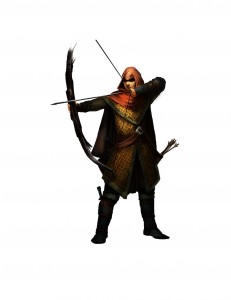Draxia RPG – A Breakdown
Dice Mechanics
The core of the system is composed of a few key parts: dice mechanics, character creation, and the utilization of mana. Dice mechanics for the Draxia RPG system are exclusively D6s. In general, when dice need to be rolled, a player references the core attribute (such as strength) and rolls dice equal to the value. The result of the dice rolled is the sum of the dice plus any modifiers that may be present. If the result exceeds five more than the target needed for success, a critical success is made. If the result is five below the target for success, a critical failure occurs.
There are a few reasons I chose to make the dice system this way. First, it’s a simple system. Having a handful of D6s is easy to get, and rolling a couple of D6 dice and adding the values together makes a low barrier to entry to learn the system. In fact, at more than one convention I ran the systemfor a group of convention attendees where one or more had never played in a single RPG before. Within less than half an hour they were rolling dice confidently, taking their turn independently.

Character Creation

Next up is Character Creation. Personally I find it frustrating when I play an RPG system that forces an archetype on me. I find a highly structured character class / leveling up system inhibits and limits how a Character develops. In order to allow players to do what they want with their Character, I created an Experience Point (XP) buy system. This means that a player is given Experience Points and is allowed to assign them wherever they want on their Character. For example, if you want your spell-casting wizard-like Character to have a lot of Health, you can spend Experience Points to increase his Health. Without designated character classes and levels, the player is allowed to create their vision for a Character.
Magic Utilization

Here’s to Epic Dreams and Epic Ideas,
Jimmy Sanders
Lead Game Designer
Mythica Gaming LLC
